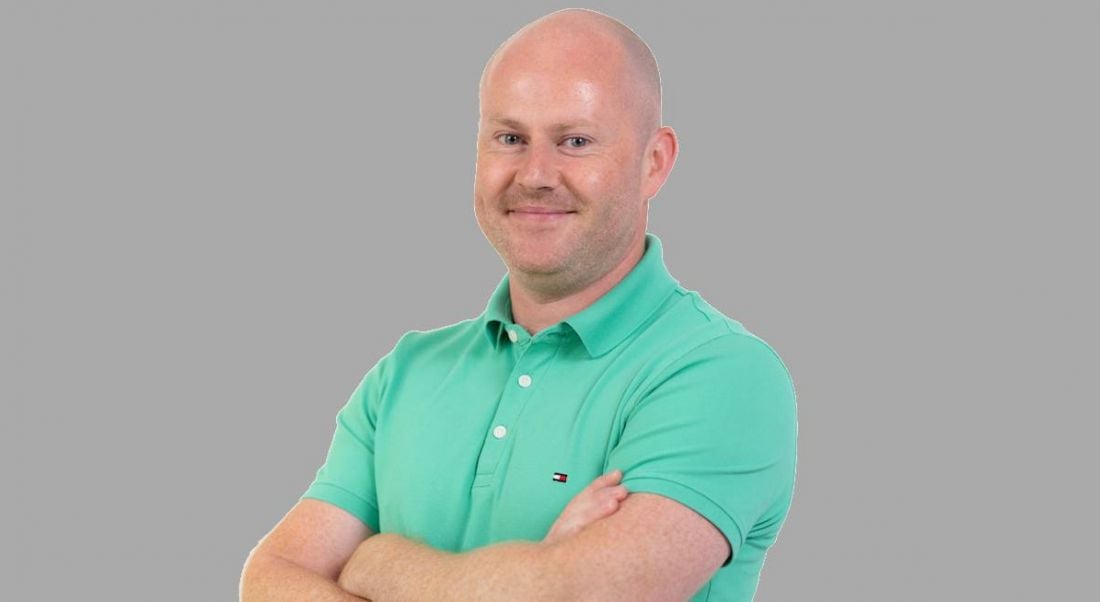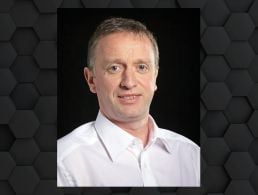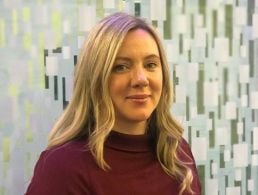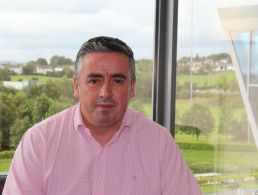Simon Cameron began his career as a car mechanic before a workplace injury led him to pivot and start on a new journey in biopharma.
Simon Cameron began his career as a car mechanic and worked for more than 10 years in the industry. However, a workplace injury meant a career change.
He went on to get a bachelor’s degree in mechatronics at TU Dublin in Blanchardstown and was the first recipient of the Engineers Ireland Engineering Excellence award for his academic performance.
“This was a steep learning curve at the time but my keen interest in the field of mechanical engineering actually made the transition more straightforward than I initially thought,” he told SiliconRepublic.com.
Five years later, he is now working within the engineering team at Bristol Myers Squibb (BMS), having first started as an intern before joining the company’s graduate programme.
‘I don’t think that anyone can be fully prepared for what lies ahead in their career’
– SIMON CAMERON
What drew you to BMS when you were seeking work as a graduate?
TU Dublin and BMS have an existing relationship through some calibration and instrumentation upskilling courses. A lecturer put me in touch with a hiring manager in the asset management team and from there I started a summer internship in 2018.
I then returned for a further internship in 2019 and from there I was encouraged to apply for the graduate programme (2020 September intake). I had built up a very good relationship with the engineering team and was keen to return and get further exposure to other aspects of the business through the rotational graduate programme.
What expectations did you have before you began the programme?
I was fortunate enough to have completed two previous internships within BMS prior to starting the graduate programme. This exposure had given me a high expectation of the company and for the calibre of people I would be working alongside.
From my previous experience I knew I would be treated as an equal within the company as I had been during my internships.
The structure of the graduate programme along with the supports provided and guidance from managers gave me personal confidence and a welcome sense of inclusion which had reaffirmed my initial expectations.
What duties and responsibilities were you given initially?
After completing my initial training, I was tasked with collating information which would be used in the establishment and optimisation of predictive maintenance and preventative maintenance strategies for various asset types within our multi-product cell culture facility.
Some of the optimisation work delivered cost savings and labour hour savings for the team. I had various tasks involving further set-up of maintenance, repair and operational and spare part inventory for the engineering team too.
Each month I collated data to generate a report summarising corrective work in order to highlight areas of concern with regard to repeat reliability issues.
Did the scope of your work change as the programme progressed?
Although the initial responsibilities remained, as the programme progressed and my experience increased, the scope of work increased accordingly.
The increase in this scope of work was well managed and reflected my experience and level of ability as I became more knowledgeable in my role.
Can you describe a typical day in your role?
A typical day would entail responding to email queries and attending, participating and chairing virtual meetings. I am routinely involved in the optimisation of preventative maintenance programmes for pressure systems and associated safety devices.
This is a crucial aspect of my current role, which requires a knowledge of regulatory standards, ensuring correct certification of equipment and promoting compliance with site safety expectations.
Most recently I have become the point of contact and responsible person for the delivery of a digital twin pilot project. This project requires me to liaise virtually with external vendors situated worldwide (Singapore, US, Europe, etc) and retrieve the relevant metadata required for the vendor to design a digital twin of a centrifuge.
The pilot is being trialled with a view to increasing the ability of staff to perform leaner end to end maintenance activities.
How do your responsibilities compare to more experienced employees’?
I am given the autonomy to deliver on my tasks and objectives, but with the appropriate level of supervision and assistance from colleagues and peers.
I have been assigned various tasks and projects throughout my time with BMS which are challenging but at the same time push me to accelerate my progression to meet the demands of a busy role – whilst ensuring I get up to speed quickly with those who may have more experience in the team.
As I move somewhat out of my comfort zone into a rotation with manufacturing technology, I know I have further opportunity to learn new skills – I guess this is the type of flexibility which the programme allows and means I can further diversify my experience by getting exposure to other business functions.
Do you feel more prepared for working life after this programme?
The biopharma industry is one that leads the way with innovation, tackling challenging objectives in order to meet the needs of our patients.
I don’t think that anyone can be fully prepared for what lies ahead in their career. I have just completed rotation one of a three-rotation programme.
Saying that and looking forward to rotation two, I would be confident to say the skills, knowledge and experience gained to date on the graduate programme will undoubtably increase my ability to perform in my career going forward.
Why should someone apply to the graduate programme at BMS?
As a BMS graduate you are given accountability and responsibility to deliver impactful work for the business. There is obviously a real job satisfaction element knowing we are making a difference to patients’ lives.
BMS is a diverse employer and gave me the opportunity to completely change my career path and join the business as a mature graduate.
If you are looking for a challenging role, one which tests your adaptability to change and one which is rewarding, then I highly recommend considering the BMS Cruiserath Biologics graduate programme.
10 things you need to know direct to your inbox every weekday. Sign up for the Daily Brief, Silicon Republic’s digest of essential sci-tech news.




